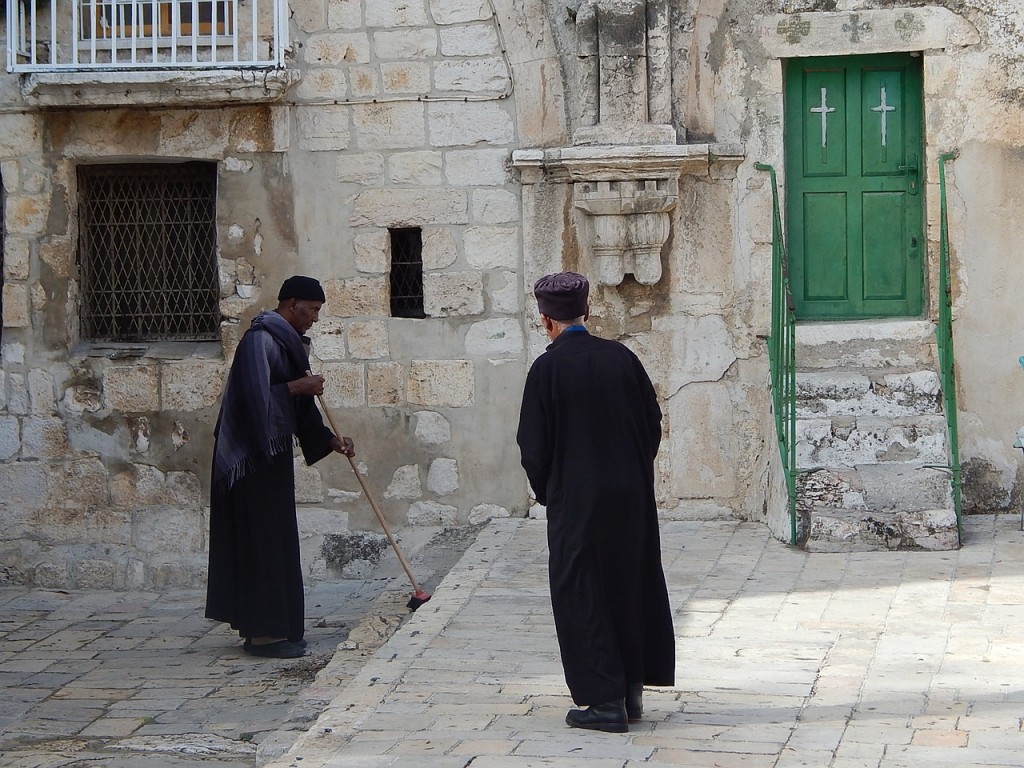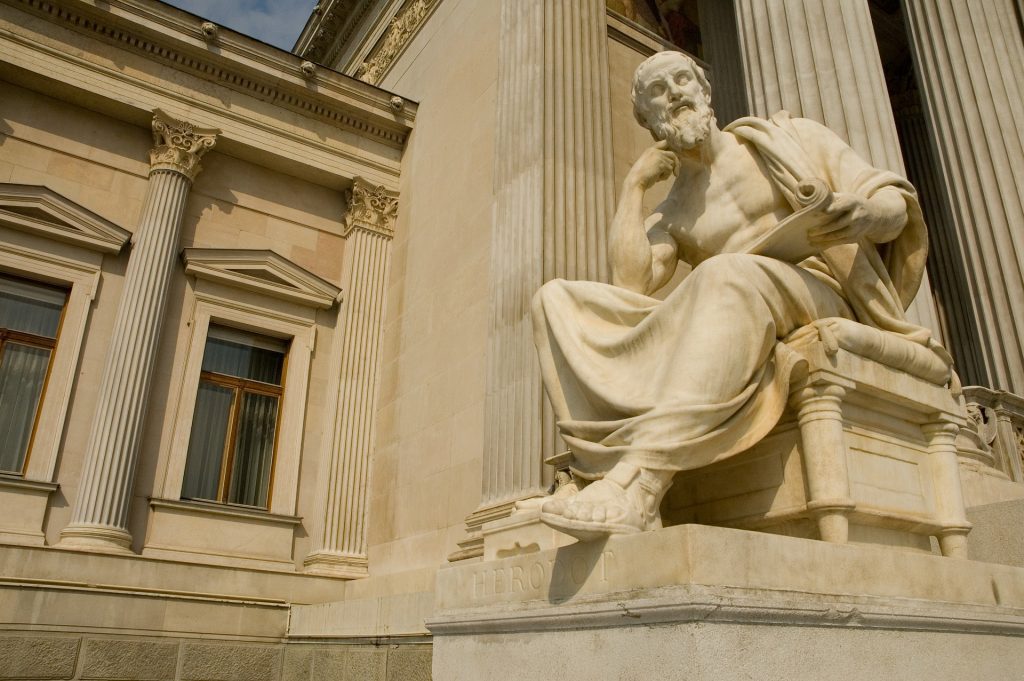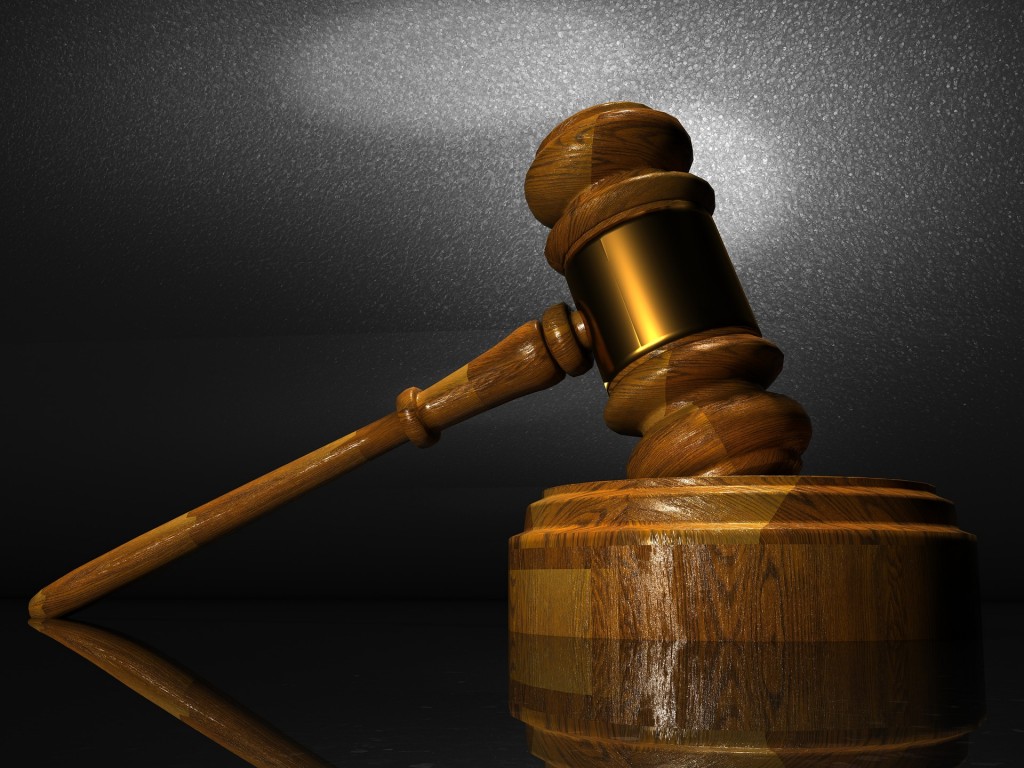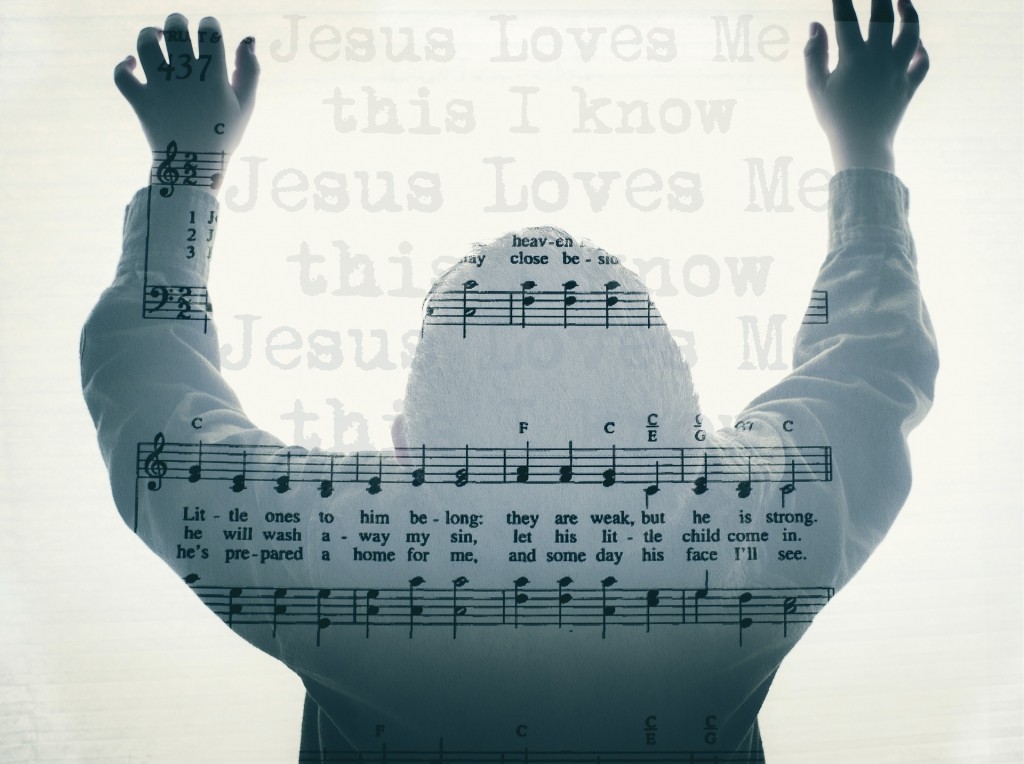Uncategorized
The Leaven of Herod (part I)
Then He charged them, saying, “Take heed, beware of the leaven of the Pharisees and the leaven of Herod.” Mark 8: 15
Jesus spoke on two different types of spirits that can affect the body of Christ. I wrote about the Leaven of Pharisees in the last two devotionals, and in this devotional I’ll share about the leaven of Herod.
In addressing the leaven of Herod, Jesus was speaking about political spirit. Political spirit is looking for power and position. Its strategy is to divide and conquer. It aligns itself with those in power and tries to eliminate those who seem threatening to its power base. Political spirit is partial and seeks out loyalty with those who are like-minded.
During Jesus’ ministry years, Herod Antipas, who was the son of Herod the Great, was in power. John the Baptist spoke out against Herod divorcing his first wife and marrying his brother’s wife (Herodias), so Herod Antipas imprisoned John the Baptist. Following a beautiful dance by Herodias’ daughter, Herod gave an open offer for anything she desired. Herodias manipulated her daughter and prompted her to ask for beheading of John the Baptist. Herod was obligated to follow through with his promise and gave orders for beheading of John the Baptist. (see Matthew 14:3-12).
John the Baptist was being perceived as a threat to Herod and to his unlawful marriage because John the Baptist called them to accountability. According to some records, Herod and his wife were seeking the title of king and queen. This was out of jealousy of Herod’s brother (King Agrippa) because he had this title. Herod and his wife were not successful in getting the title; they actually both thrown into prison due to the choices made in trying to get the title (according to Brittancia.com).
In the next devotional, I will continue with the subject of leaven of Herod (Political spirit) and how it manifests itself in today’s church.
The Leaven of Pharisees (Part II)
Then He charged them, saying, “Take heed, beware of the leaven of the Pharisees and the leaven of Herod.” Mark 8: 15
Jesus told his disciples to be aware of the leaven among them because He knew the insidious nature of leaven and its subtle impact on His disciples. Jesus spoke clearly and in much detail about the leaven of Pharisees in Matthew 23:1-28. In the last devotional, I shared a few points from this passage. This devotional is the continuation on the leaven of Pharisees.
-
Verse 5 (Show offs): Their motive was visibility not service. They were not doing things as unto the Lord; they were doing it to get the applause and honor of man. Why do we do what we do? If no one ever finds out about what we did, would we still do it?
-
Verse 6 (Honor seeking): They enjoyed places of honor. They enjoyed people looking up to them and calling them by their titles. Do we find our significance in how people perceive us ? Do we need a title to feel significant or spiritual?
-
Verse 13 (Twisted gospel message): Jesus told His disciples that the Pharisees had no place in heaven, and they were stopping others from entering because they were self-righteous. In our society, this would translate into legalists and the lawless religious groups. Those who are legalistic, make people focus on the works and rules rather than a relationship. People can follow the rules and still not have a relationship with God. There is also the spiritually lawless group that focuses on compassion and grace apart from repentance. They do not teach the entire Bible and only give people partial gospel message. Both groups are self-righteous. One group is proud to do work for God and the other group is proud to be compassionate towards man apart from God’s standard. Both of those approaches are self oriented which will neither save people nor set them free. These type of religious people don’t have a real relationship with the Lord, and they are hindering others from being saved as well.
Are we self-congratulatory in our efforts and zeal? Do our efforts produce true fruitfulness or just making us feel spiritual? Do we portray grace as a cheap commodity? Do we convey Jesus to be a desperate man looking for any kind of follower without a true commitment to Him?
-
Verses 15 (New bondages): Religious people can get excited about seeing people saved and freed up. However, they begin putting new expectations on people causing oppression and offense in a new believer’s life. The religious people, who are supposed to help free up the believers, can create new man-made rules and expectation and place them under a carnal yoke! Do we create rules for others that are not necessarily based on the Bible rather than on our preferences and convictions?
Let’s be aware of the leaven of Pharisees by knowing our Bible and not getting influenced in a toxic atmosphere.
The Leaven of Pharisees (Part I)
Then He charged them, saying, “Take heed, beware of the leaven of the Pharisees and the leaven of Herod.” Mark 8: 15
Leaven for the most part was considered evil. Jesus warned his disciples about the leaven of Pharisees and the leaven of Herod. By using this analogy, He taught his disciples to be discerning of the insidious nature of these two spirits among them.
In our modern day, one use of leaven is to make sour dough bread. Leaven becomes the starter or the instigator, and eventually permeates and ferments the whole though.
Jesus was referring to the fact that leaven has the ability to subtly poison people and gradually move them in a negative direction without one’s awareness. While the Pharisees and the Herod were not people’s role models, they still had the potency to influence people negatively. 
Jesus, in referring to the leaven of Pharisees, was speaking about a religious spirit that has a spiritual look. He was concerned for His disciples as well as all His followers, so He warns us not to influenced by this religious spirit and recognize it when we see it. Jesus shared some of the characteristics of this religious spirit in Matthew 23:1-28
-
Verse 3 (Actions not words): The pharisees’ words and actions did not match. They may have been great orators but considering how they conducted their lives, it did not hold up to their professed faith. Do our lives profess of our faith that we verbally proclaim?
-
Verse 4 (Oppressive rules): By their man-made rules, they created burdensome religion for others. However, they were not willing to lift a finger or hold themselves accountable to the same rules. They had a double-standard. Is it possible to that we perceive other people’s sin much harsher than our own sins?
I will continue with this subject in the next devotional.
Biblical Justice (Part II)
The topic of justice is a tough one and with no easy answers. It is one of those subjects that can cause great conflict and turmoil in soul and body. The desire for justice is in our nature because God has placed that desire in our hearts, and it does not go away when we are born again. The more we know about good and evil, the the issues of justice become more obvious. We can see more clearly when things are out of alignment with truth and justice. However, the scripture tells us to refrain from judging a situation prematurely.
Therefore judge nothing before the time, until the Lord comes, who will both bring to light the hidden things of darkness and reveal the counsels of the hearts. Then each one’s praise will come from God. 1Corinthians 4:5
If injustice goes unchecked for long periods of time, it causes great turmoil and even rebellion in our hearts. People can lose their sanity trying to make sense out of tough situations in the world. Unless eternity is kept at the forefront of unjust situations, there will be a great strife in relationship to God and with one another.
This does not mean that evil can go unbridled forever; God has institutions such as church and civil governments to deal with the issue of evil appropriate to their sphere of responsibility. The church government has the responsibility to oversee the spiritual health of the body by holding its members accountable to their sinful lifestyle. The civil government is responsible for holding people accountable to the laws of the land and ensure that they are not violated to protect the safety and security of all the people. Therefore, the sphere of judgment is relegated to those who are in appropriate positions to judge the situation and have the authority to understand all sides of the issue before they render a judgment.
The intent of addressing evil with church government or civil government is not in establishing perfect justice; it is only deterrence of evil and establishing order. The truth is that a person can be a church member or a law-abiding citizen but still commit sins that are against God’s holy word and His commandments. No one is capable to bring about perfect justice on this earth because man is sinful and not omnipotent. God has reserved true justice only for His son because He is the only one deserving and capable of rendering perfect justice!
Lord, give us insight into the injustices we see in the world and help us to know how we can be part of the solution for reconciliation.
Biblical Justice (Part I)
The Lord has much to say in the area of justice. The Bible is full of scriptures that speak about this issue. However, when I looked at the word “justice” in my New King James Version (NKJV) Bible, I found that there is no mention of the word “justice” in the New Testament. I only found words such as “judging” and “judgment” in the New Testament.
There is a big difference between judging a situation and establishing justice. When we judge a situation, we determine the degree of good or evil of an action. However, justice is about dispensing a just sentence in a particular situation.
You judge according to the flesh; I judge no one. And yet if I do judge, My judgment is true; for I am not alone, but I am with the Father who sent Me. John 8:15-16
In the New Testament, the scripture primarily points to mercy instead of judgment. Jesus, fought the injustices of His day in the opposite spirit of those who came against Him, and He finally went to the cross for it. His mercy overcame the injustice by forgiving the sinners who crucified Him. Jesus in several places spoke about coming to save the world and not to judge the world.
Injustice is an abomination to the Lord, and there are serious consequences to being unjust according to scripture. God expects His people to be impartial and to act justly, but he does not ask any of us to render justice. He doesn’t call us to kill and punish the evildoers in order to please our God as some religions do.
Lord we pray that you would give us the courage to act justly and to not show partiality towards people. We rebuke the spirit of fear, prejudice, and pride, and we declare that you have given us a Spirit of power, love, and a sound mind to respond in the opposite spirit. Thank you Lord. Amen!
The Joy of the Lord in the Midst of it All…
We just returned from a short trip to Yosemite National Park. The grandeur of those big rocks are a reminder of God’s majesty and how awesome and unchanging He is. In the midst of all the turmoil in the world, we need to remain focused on Him and worship Him. Our limited human capacity does not allow us comprehend it all, and it is too much to try to do so. However, we serve a God who is holy, just, loving, patient, and merciful.
O God, You are my God;
Early will I seek You;
My soul thirsts for You;
My flesh longs for You
In a dry and thirsty land
Where there is no water.
2 So I have looked for You in the sanctuary,
To see Your power and Your glory.
3 Because Your lovingkindness is better than life,
My lips shall praise You.
4 Thus I will bless You while I live;
I will lift up my hands in Your name.
5 My soul shall be satisfied as with marrow and fatness,
And my mouth shall praise You with joyful lips.
6 When I remember You on my bed,
I meditate on You in the night watches.
7 Because You have been my help,
Therefore in the shadow of Your wings I will rejoice.
8 My soul follows close behind You;
Your right hand upholds me.
9 But those who seek my life, to destroy it,
Shall go into the lower parts of the earth.
10 They shall fall by the sword;
They shall be a portion for jackals.
11 But the king shall rejoice in God;
Everyone who swears by Him shall glory;
But the mouth of those who speak lies shall be stopped. Psalm 63
Prayer for God’s mercy
I had written a different devotional for this week, but after the tragedy of last night, I decided to change my blog for today. In times like this, we need to go before the Lord and ask for His mercy and grace upon the land. Psalm 121 is a good place to start. We need the Lord’s hand of mercy to keep evil in check or no human institution would be capable of protecting all people. Please keep our nation, France, and all those who are hurting or grieving losses in your payers.
I will lift up my eyes to the hills—
From whence comes my help?
2 My help comes from the Lord,
Who made heaven and earth.
3 He will not allow your foot to be moved;
He who keeps you will not slumber.
4 Behold, He who keeps Israel
Shall neither slumber nor sleep.
5 The Lord is your keeper;
The Lord is your shade at your right hand.
6 The sun shall not strike you by day,
Nor the moon by night.
7 The Lord shall preserve you from all evil;
He shall preserve your soul.
8 The Lord shall preserve your going out and your coming in
From this time forth, and even forevermore.
The Significance of Christian Faith in American Democracy (Part III)
Some will disagree with the fact that democracy must be established on Biblical principles in order to survive as a healthy system of government. They would argue that if Christianity is the basis of American democracy, then people are forced to follow Christian morality. They would contend that you cannot legislate morality. That is a true statement. However, man in his nature is a moral being and has to continually decide between good and evil. Many times people are not against a moral decision per se but rather they are against a morality that is based on faith. They deem religious morality as irrelevant and outdated; they would rather have a morality that is based on people’s personal ideas or preferences than one’s faith regardless of what that morality stands for.
Every one of us has a value system that is based on our view of the world, hence, we all have a set of morals. The challenge is that if our morality is based on our humanistic thinking or preferences, it is continually subject to change because we live in an ever changing world with many new and old challenges. If we our morality is not based on Christianity, it will get downgraded to become a situational morality based on the convenience and the desires of the moment. That is a shaky ground for individuals and for all of us as a nation.
Christian morality is based on a set of beliefs that are not always easy to follow even for those who are willing. This morality is based on how God expects His children to behave in a hostile world. Jesus spoke to believers about injustices and persecutions, and He encouraged them to keep loving in the midst of the battle because he has overcome all evil in the world. If we don’t hold on to this morality, when the pressure comes, we will return to our old nature which is self-preservation. It will become an “eye for an eye” situation and will perpetuate hatred in the atmosphere.
Democracy still gives room for individual’s voice to be heard but Christian morality allows a restraining factor to be present where not every vain imagination gains equal value to the tried and true ways that have been tested over the centuries and have kept people and cultures healthy according to God’s word.
While Christianity has given room for everyone to have a voice in this amazing governmental system, unfortunately, it now gets the brunt of resistance from some people. If we forget where have come from, we will despise the very foundation that this nation was built upon. A faulty foundation will work towards its demise as a free and democratic nation for all. Let’s be thankful to God for this beautiful nation which is still one of the best governments to live under but work towards making it better for all.







